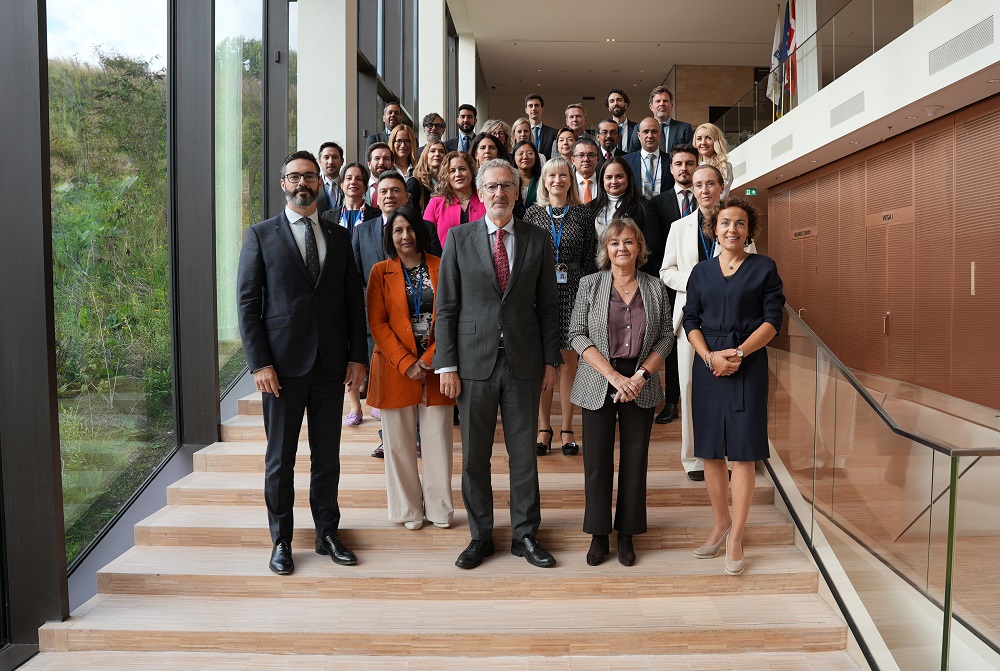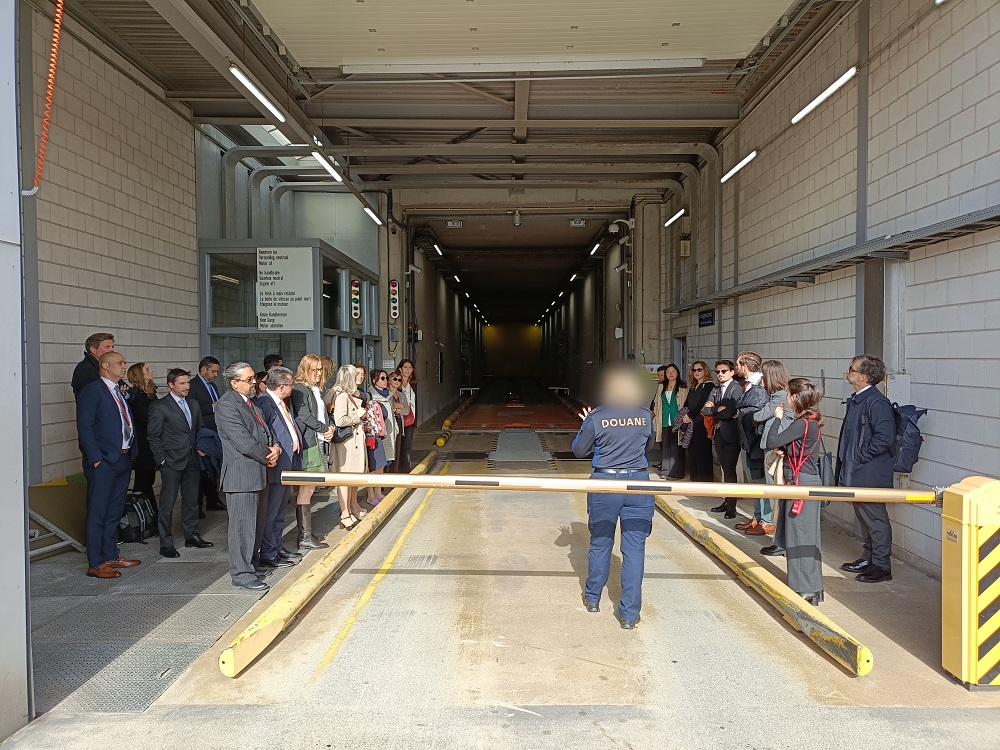 The European Judicial Organised Crime Network (EJOCN) and EL PACCTO 2.0 held a bi-regional meeting of prosecutors on drug trafficking investigations in ports at Eurojust headquarters in The Hague on 29-30 September 2025. The event, which was attended by prosecutors from EU and Latin American countries, aimed to share expertise and develop mutually supportive strategies to tackle drug trafficking via ports by organised criminal groups.
The European Judicial Organised Crime Network (EJOCN) and EL PACCTO 2.0 held a bi-regional meeting of prosecutors on drug trafficking investigations in ports at Eurojust headquarters in The Hague on 29-30 September 2025. The event, which was attended by prosecutors from EU and Latin American countries, aimed to share expertise and develop mutually supportive strategies to tackle drug trafficking via ports by organised criminal groups.
The EU's seaports continue to be the main gateway for illicit drugs, with over 1,800 tonnes intercepted between 2019 and 2024. Although enhanced security measures have led to a decline in seizures at major ports, criminal organisations are evolving their tactics, employing new concealment methods and rerouting shipments to alternative ports and routes. As a result, it is essential to enhance cooperation and information sharing among law enforcement agencies and judicial authorities to keep track with the highly adaptable criminal groups.
To this end, the current focus of the EJOCN, based at Eurojust, is the illegal trafficking of drugs by organised criminal groups through logistical hubs, including through seaports. The Network, which was established in 2024, has an operational, strategic and analysing dimension aims to facilitate the operational and strategic cooperation among judicial authorities dealing with organised crime, with the goal of combating it more effectively.
 Building on this momentum, the EJOCN jointly with EL PACCTO 2.0 organised this week’s meeting, featuring expert presentations, practitioner roundtables, and cooperation workshops, as well as a visit to the Port of Rotterdam to view operational demonstrations.
Building on this momentum, the EJOCN jointly with EL PACCTO 2.0 organised this week’s meeting, featuring expert presentations, practitioner roundtables, and cooperation workshops, as well as a visit to the Port of Rotterdam to view operational demonstrations.
EL PACCTO 2.0 is the European Union Regional cooperation programme that supports Latin American and Caribbean countries in their fight against transnational organised crime, fostering the EU-LAC strategic partnership on Justice and Security. This first collaboration with the EJOCN is a natural extension of the Programme’s existing alliances with Eurojust and the Latin American General Prosecution Offices and Networks.
The meeting enabled participants to engage in in-depth discussions on key operational and strategic challenges, such as controlled deliveries, illicit money flows, and the sharing of intelligence and spontaneous exchanges of information. Additionally, the event facilitated the strengthening of professional relationships among prosecutors across these two regions and paved the way for future collaboration, allowing them to explore new avenues for joint initiatives and cooperation.
The event demonstrated the commitment of both regions to work together to address the global challenges posed by organised crime, and to develop effective common strategies to disrupt and dismantle criminal networks that operate across continents.
